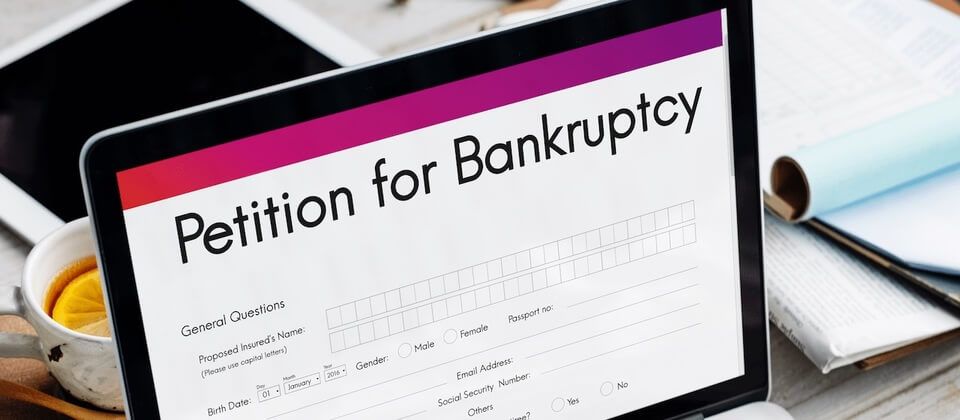Bankruptcy FAQs
Are you considering filing for bankruptcy? Bankruptcy can be the right choice in many situations, but it also has serious financial consequences that should not be taken lightly. To help you begin the process of making an informed decision about whether bankruptcy is right for you, here are the answers to some common bankruptcy FAQs we encounter.
What are the advantages of filing bankruptcy?
The main advantage of filing for bankruptcy is getting out from under your debts. Once you complete your bankruptcy, you no longer have an obligation to pay any debts that were covered by the bankruptcy. No longer having to make debt payments means keeping more of your money each month, and your credit score will eventually go back up if you maintain good credit habits.
Bankruptcy also provides important protections against creditors. Once you file for bankruptcy, creditors cannot legally continue to contact you for payment outside of the bankruptcy process. They are also prohibited from trying to later collect debts that were discharged in bankruptcy. This can provide peace of mind even before you've completed the bankruptcy process.
Do you get out of all debts if you declare bankruptcy?
Bankruptcy eliminates most but not all debts. The most important step you need to take is making sure that your debts are included in your bankruptcy. This is in order to give creditors proper legal notice so that they can protect their own rights, including their right to share any amount you pay in your bankruptcy.
Some types of debts cannot be included in a bankruptcy by law. These can include lawsuit judgments, student loans, and taxes. There are many rules and exceptions, so you should always check to see whether your specific debt is eligible.
Finally, there may be time limits which can vary based on the type of debt. For example, when a federal tax debt is allowed to be included in bankruptcy, it needs to be at least three years old. There are also protections against fraud, such as running up credit card debt on an expensive vacation right before filing for bankruptcy.
Can I file bankruptcy?

If you're seriously considering filing for bankruptcy, you're likely eligible. The primary criteria for bankruptcy eligibility is that you don't have the financial means to pay off your debts within a reasonable period of time. This is based on both your income and your assets.
If you have low income, you may be eligible for a Chapter 7 bankruptcy, also called liquidation bankruptcy. If you have high income, a Chapter 13 repayment plan might be right for you. To be eligible for a repayment plan, you'll need to have enough monthly income to cover your proposed monthly payments.
In some cases, you may need to sell assets and pay down debts before being eligible for any type of bankruptcy. You'll also need to meet other criteria, such as not having filed for bankruptcy within a certain period of time and not having previously engaged in fraud or abuse of the bankruptcy process.
How long does it take to file bankruptcy?
Filing for bankruptcy is a complex legal process that varies based on both the information you need to gather and how busy your local bankruptcy court is. You'll need to collect detailed financial information and include it in your court filings. Preparing your court filings can take anywhere from a few weeks to a few months. The typical bankruptcy court case takes a few months, but this could be longer if your case is more complex. Finally, if you file for Chapter 13 bankruptcy, your bankruptcy will remain open for three to five years while you make payments on your plan.
You can learn more about how long it takes to accomplish certain milestones during and after filing for Chapter 7 and Chapter 13 bankruptcy in our blog Bankruptcy: How Long Does It Take? [ Infographic ].
How many times can you file bankruptcy?
You can file for bankruptcy as many times as you want to, but there is a catch. There is a waiting period after your debts are discharged until you can file for bankruptcy again. This waiting period can be as long as eight years depending on the type of bankruptcy you filed, your type of debts, and how much of your debts you paid back. For this reason, you typically want to stabilize your financial situation and ensure you will not be adding future debts before filing for bankruptcy.
How soon can you file Chapter 13 after Chapter 7?
There are two options for filing for Chapter 13 bankruptcy (repayment plan) after Chapter 7 bankruptcy (liquidation). You may be considering this solution if certain debts were not included in your Chapter 7 bankruptcy, or if you experienced a subsequent hardship.
If you want to be eligible to have your debts discharged under Chapter 13, you generally need to wait at least four years after your Chapter 7 bankruptcy was complete. Otherwise, you can file for Chapter 13 bankruptcy immediately. The advantage to filing for Chapter 13 bankruptcy without being eligible for discharge is receiving protections from other collections actions and allowing you to prioritize your most important payments, such as a mortgage or auto loan.
How long does a bankruptcy stay on your credit report?
A Chapter 13 bankruptcy will generally stay on your credit report for 7 years, while a Chapter 7 bankruptcy generally stays on for 10 years. Bankruptcy does not remove any late payments or other delinquencies from your credit report. Those also typically stay on your credit report for at least seven years after the date which they occurred.
The good news is that the impact on your credit score lessens over time. Even if a bankruptcy or other negative item is still on your credit report, your credit score will usually start to rebound after a year or two as long as you maintain an otherwise positive history.
Why should you work with a bankruptcy attorney?
As you can see, bankruptcy is complex and has a lot of choices to make. Your eligibility will depend on your exact situation, and making mistakes during the bankruptcy process could make you ineligible for bankruptcy or having your debts discharged. Before making any decisions, schedule a consultation with an experienced bankruptcy attorney to review your personal situation and determine what course of action is best for you.
 Start Your Case Online
Start Your Case Online
- 200+ Years Combined Legal Experience
- 24/7 Support
- Top Rated Criminal, family, and Injury Attorneys
- Flexible Lawyer Payment Plans
- Call Today 386.222.6677